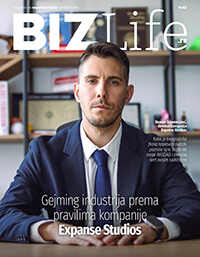
Council: REM should explain the frequency allocation criteria in detail
The Anti-Corruption Council of the Government of Serbia has stated that when awarding four national frequencies as one of the key criteria, it was necessary to consider in detail how the media outlets that applied functioned in the previous period, adding that there was no reason to postpone the awarding of the fifth frequency.
„The credibility of the media that did not meet the assumed obligations for the obtained frequency and the obligations from the attached studies is questionable and there is no guarantee that this will not happen again. If the Regulatory Authority for Electronic Media (REM) believes that it is irrelevant whether and how many times television stations that owned a national frequency violated the Laws, Regulations, Codes and ethical norms, this cancels out the much-needed principle of responsibility and makes the work of professional associations senseless“, the Council said in a statement.
The Council believes that there was no reason to postpone the allocation of the fifth frequency because it only creates the conditions for various manipulations.
„We believe that it is in the public interest for REM to explain in detail to citizens which criteria the members were guided by when voting because the ‘measurable criteria’ are not clearly defined. The explanation that ‘the decision was made by a majority of votes in secret ballot’ is not enough“, he statement said.
They also assessed independent, objective and professional media as one of the pillars of the fight for democracy, the rule of law and the effective fight against corruption.
Further collapse of the media scene
As they recalled in the statement, in 2014 and 2015, the Council published three Media Transformation Reports, pointing out that non-transparent ownership and financing, the use of public money for media financing, as well as the political influences and unprofessional work of individual journalists led to tabloidization of the media and non-objective informing of citizens.
„In recent years, there has been further collapse of the media scene in Serbia, and the Media Strategy has not produced the expected results, which is constantly pointed out by professional journalists’ associations in Serbia and many serious institutions from abroad.“
Today, there are confronted media and opposing citizens. Public interest has been neglected, says the Anti-Corruption Council.
Izvor: Beta
Foto: Pixabay







